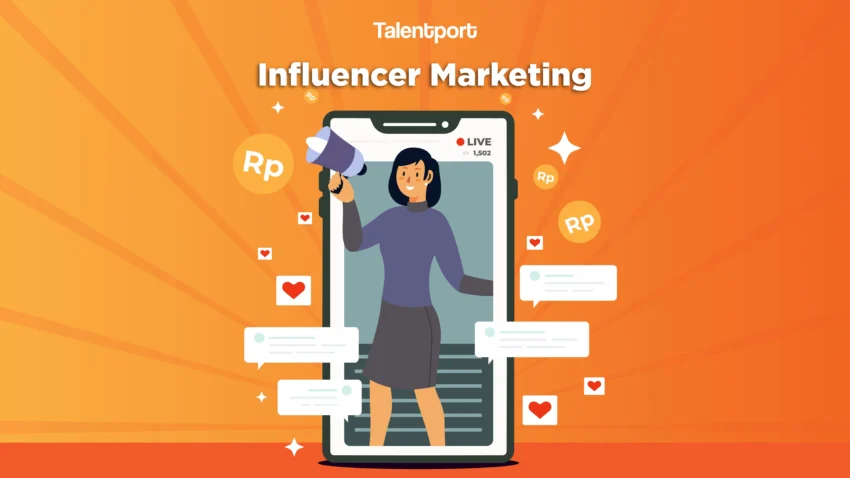Influencer Marketing Trends for Small Businesses in 2025

Why Influencer Marketing Still Reigns Supreme in 2025
Let’s face it: marketing has changed.
We’ve entered an era where people trust people, not brands. And in 2025, influencer marketing has cemented its place as one of the most powerful tools for small businesses to drive visibility, build trust, and convert browsers into loyal customers.
Whether you’re running a local coffee shop, a handmade jewelry brand, or a Shopify e-commerce store, the influencer space in 2025 has leveled the playing field. You no longer need to chase celebrity influencers with million-dollar contracts. Instead, it’s all about community-first creators who engage meaningfully with audiences that match your customer base.
Now, let’s dive into the top trends every small business owner should know.
🔥 Top Influencer Marketing Trends for 2025
1. Micro-Influencers and Nano-Influencers Lead the Charge
Forget chasing big names. The magic lies in the micro.
- Micro-influencers (10K–50K followers) and nano-influencers (1K–10K) are proving to deliver 3–5x higher engagement rates than macro-influencers.
- These creators speak directly to tight-knit communities. They’re relatable, trustworthy, and often hyper-local.
Why small businesses love them:
- Affordable collaboration (sometimes just free products)
- Niche-focused audiences that actually care
- More responsive and flexible when co-creating content
💡 Example: A boutique candle brand in Accra sent care packages to 15 nano-influencers focused on home décor. Each shared cozy room setups featuring the candles—and the business saw a 46% sales spike in under two weeks.
2. Video Content and Live Streaming Are Non-Negotiable
Welcome to the era of video-first influencer marketing.
With platforms like TikTok, Instagram Reels, and YouTube Shorts dominating attention spans, influencers are becoming mini-TV channels.
In 2025, video is where influence happens.
- TikTok trends drive impulse buys
- Instagram Live allows real-time product launches
- YouTube Shorts give your brand discoverability and storytelling
Live content, especially, taps into urgency and authenticity. Influencers go live to:
- Unbox your products
- Walk through tutorials
- Host live Q&As and giveaways
🎥 Pro Tip: Co-host a live session with a local influencer for a product demo and live discounts. It’s like your own pop-up shop—broadcast to hundreds of potential buyers.
3. Shoppable Content and Affiliate Links Are Now the Norm
Gone are the days of clunky “link in bio.” In 2025, influencer content is shoppable right where it lives.
What’s trending:
- Instagram and TikTok shops with clickable product tags
- Affiliate links that track influencer-driven sales (and reward them)
- Creator marketplaces where brands and influencers partner natively on platforms
This trend is a game-changer for small businesses. Why? Because it lets you track ROI precisely—no guesswork.
📈 Case Study: A Ghana-based skincare brand used affiliate links on influencer Reels. Over a 3-week campaign, they tracked 612 direct sales and grew their mailing list by over 1,000 subscribers—without spending on ads.
4. Long-Term Partnerships Over One-Time Collabs
The best relationships are built on trust—and time.
In 2025, brands are moving beyond “one and done” shoutouts. They’re building ambassador programs with creators who genuinely love their products.
Why long-term wins:
- Consistent messaging builds audience trust
- Better storytelling across multiple content pieces
- Influencers become part of your brand family
🤝 Inspiration: A startup tea company built an “Inner Circle” with 10 micro-influencers who post monthly content, attend virtual team huddles, and help brainstorm flavors. Not only did sales grow steadily, but their content calendar also became self-sustaining.
5. Influencers as Content Creators (Not Just Promoters)
Today’s influencers are production studios in a box.
They shoot, edit, caption, and distribute—faster and often better than agencies. Smart small businesses are:
- Hiring influencers to create content packages (e.g., 3 videos, 5 photos)
- Reusing influencer content for ads, websites, and email
- Letting creators lead campaign ideas (they know what works)
🧠 Pro Tip: Pay an influencer to create an Instagram Reel explaining your brand story in their voice. Post it to your feed and use it in Facebook Ads. It’s authentic storytelling with zero production hassle.
🔎 How to Find the Right Influencers for Your Business
You don’t need 10K followers yourself to find the perfect influencer.
✅ Use Smart Discovery Tools
Here are 3 platforms to make your life easier:
- Heepsy – Simple interface for finding niche creators worldwide
- AspireIQ – Great for campaign management and influencer outreach
- Collabstr – Pay-per-post model with verified influencers
📊 Evaluate Before You Collaborate
Look beyond follower count. Instead, ask:
- What’s their engagement rate? (1-5% is solid)
- Do their followers match your ideal customer?
- Are their comments real conversations, or just emojis?
- How do they tell stories through their content?
👀 Mini Checklist:
✅ Authentic voice
✅ Consistent posting
✅ Creative and brand-aligned aesthetic
✅ Responsive to DMs or email
🧠 Influence is Evolving—And It’s on Your Side
The influencer marketing landscape in 2025 is more accessible, more measurable, and more human than ever before.
Small businesses now have the tools and creators they need to:
- Build real brand loyalty
- Increase revenue organically
- Compete with big brands on relatability
By leveraging micro-communities, video storytelling, and long-term relationships, you can turn every influencer collaboration into a growth engine.
And remember: the goal isn’t to go viral. It’s to build connection, trust, and repeat customers. That’s the kind of influence that truly lasts.



